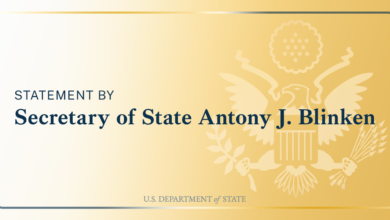Russia’s defense industry has a massive labor shortage. Rules on what jobs women can do are part of the issue.

-
Russia’s defense industry is short some tens of thousands of skilled laborers.
-
Traditional gender roles limit women’s participation in crucial jobs there, a report says.
-
Demographic trends and policies further strain Russia’s labor force and defense industry.
Russia’s defense manufacturing sector is short some tens of thousands of skilled laborers — and its hard stance on traditional roles for women could be part of it, according to new reports.
Two years into its war in Ukraine, Russia is ramping up its military with a record 40% of its overall budget now devoted to defense. It also plans to expand its number of active soldiers to 1.5 million.
That requires vast amounts of military equipment, and the infrastructure to support it.
And that, in turn, requires workers, which Russia is currently struggling to find.
In January, Russian President Vladimir Putin boasted that “over half a million jobs were created in the defense sector over the last year and a half alone,” according to Russian state-owned news agency TASS.
Yet, while the jobs may be there, the workers aren’t.
An analysis published this week by BBC Russia found that in the space of a single month this summer, some 90,000 defense industry-related job postings had appeared, with wages much higher than average salaries.
The BBC said there were some 18,600 vacancies for operators of computer numerically controlled machines, or CNCs, which are used for shaping materials and are in wide demand in manufacturing. But just 600 resumes had come in for those roles, the outlet reported.
Some of the postings had stood unfilled for months, it added.
Researcher Dara Massicot, who focuses on defense and security issues in Russia and Eurasia at the Carnegie Endowment for International Peace, highlighted labor shortage issues in a recent paper on how Russia is reconstituting its military.
Workers who would normally plug the gap — such as migrants, students, and prisoners — are now being used as combatants to fight in Ukraine, she wrote.
“According to conservative estimates, wartime emigration and military mobilization have cost the workforce about 600,000 working-age males,” Massicot said.
Russia does have one largely untapped source of labor for the defense industry: women. But here it finds itself in a bind.
Since the 1970s, women in Russia have been barred from a raft of professions that are crucial to the defense sector, for fear of harming their fertility or a pregnancy, according to Massicot.
“Women are prohibited from certain occupations deemed physically dangerous,” she wrote, giving examples such as those that deal with hazardous chemicals or heavy metals, which rules out many defense industry jobs.
Women are also barred from jobs like mining, heavy lifting, operating heavy machinery, most metallurgy, and handling various chemicals, she added.
By contrast, 5% of US welders are female, according to the American Welding Society — a small proportion of the workforce that still amounts to tens of thousands of available workers.
“Russia would rather import foreign labor and use convicts than change the labor code (from the 1970s) to allow Russian women into certain types of jobs,” Massicot wrote on X this week.
But Russia is in a demographic spiral, which pre-dates COVID and the mass mobilization for the war in Ukraine.
At the end of 2023, Russia was short a record 5 million workers across all sectors, according to an estimate from the Russian Academy of Science’s Institute of Economics, Reuters reported at the time.
The decline in Russia’s labor force is forecast to continue until 2040, Massicot wrote.
Meanwhile, Russia is now leaning on the war to keep its economy from collapsing, putting more pressure on its labor force. Economists say the war is the only thing keeping Russia from entering an immediate recession.
Yet Russia appears to be focusing on longer-term solutions to its demographic issues, with a strong turn toward traditional roles for women.
Putin recently reminisced about a time when women “had seven or eight children, and maybe even more,” adding that “large families should be the norm,” El País reported.
Last summer, Russia’s Minister of Health Mikhail Murashko proposed policy tweaks that would reduce women’s access to abortion, saying that there is a “vicious practice” of prioritizing a woman’s career before children, per El País.
This would make bringing women into defense manufacturing a hard cultural and political pivot, Massicot said on X.
Read the original article on Business Insider




